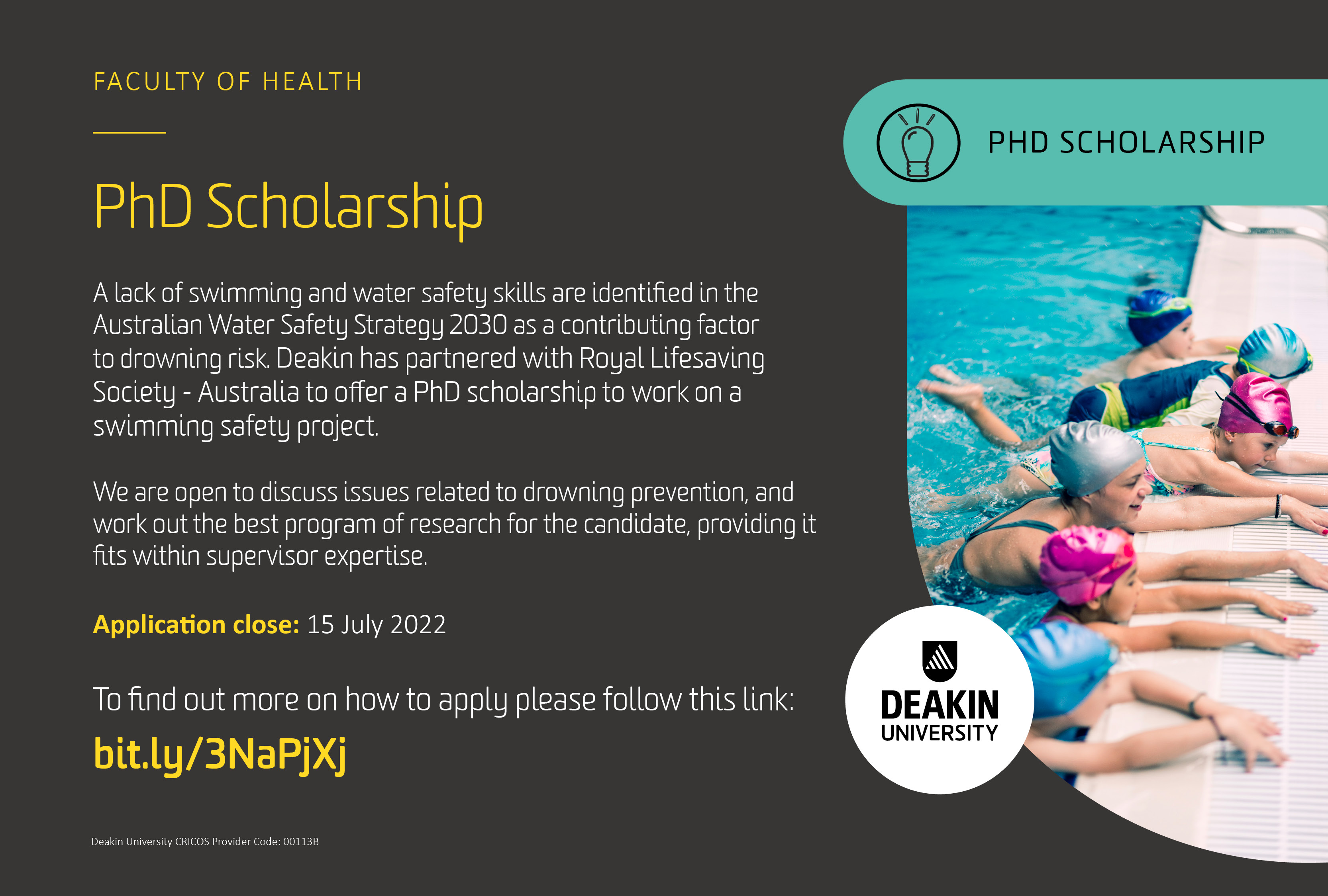Published 18 May 2022

Wanting to make a difference in the world of Swimming and Water Safety?
A PhD Scholarship opportunity is available now with Deakin University and Royal Life Saving Society - Australia to initiate and conduct research on 'Reducing drowning: understanding factors which contribute to risk and targeting those at risk'.
Swimming and water safety skills are identified in the Australian Water Safety Strategy 2030 as a contributing factor to drowning risk. Promoting swimming and water safety in aquatic different environments is an important educative and international public health issue. In 2019/2020 Royal Lifesaving Australia noted 56% of drowning incidents in children aged 5-14 years were while swimming and recreating. Previous research has found that up to 40% of Australian children leaving primary school do not reach the minimum National Benchmark for swimming and water safety skills for age 12, which includes amongst other competencies, a ‘50m swim’ and ‘scull or tread water for 2 minutes and signal for help’. In Australia, swimming programs are not mandatory in schools and participation in commercial learn to swim programs is around 8 years of age - well before children have developed the necessary swimming and water safety skills.
Benchmarking where Australian children are at in their swimming and water safety competency is an important area to understand. The National Swimming and Water Safety Education Framework outlines key competencies children should have developed by age 6 years, 12 years and 17 years, with the benchmarks for 6 years and 17 years only recently developed. but we don’t know how these new standards are considered by the public, for instance, are they considered achievable for Australian children?
Part of reducing children’s risk of drowning, is understanding how a child perceives their swimming competence and how that relates to their behaviour around water. Examining parents’ views of their children’s swimming competence is also important, as these views influence what parents allow their children to do around water. There is still much to explore in the area of perceptions of water competence and the relationship to water risk behaviours and transfer of skills from a pool environment where most children learn to swim, to an open water environment.
Finally, certain groups in the population have been identified as being at higher risk than other groups for drowning. The Australian Water Safety Strategy identifies First Nations/Aboriginal people, migrants and rural/regional residents as priority populations for reducing drowning. Barriers to accessing swimming and water safety programs are well known, however there is a gap in knowledge about those groups who have never engaged with swimming and water safety education and more knowledge is required to reach and engage with these families and communities. y. Innovative ways to target these groups to ensure they have access to learn swimming and water safety competency are needed. Deakin has partnered with the Royal Lifesaving Society to offer a PhD scholarship to target one or more of these issues. The scholarship must be started this year.
